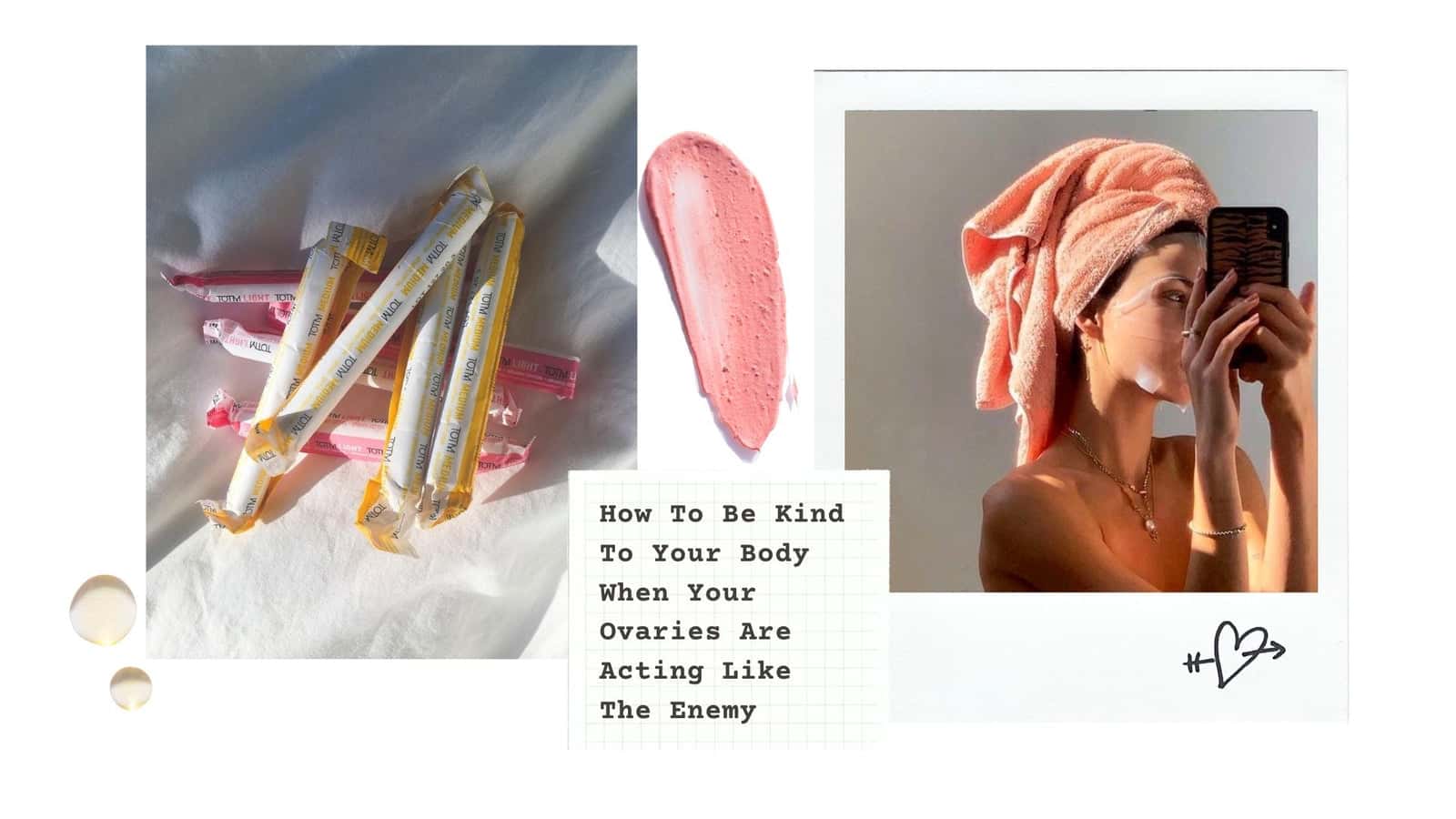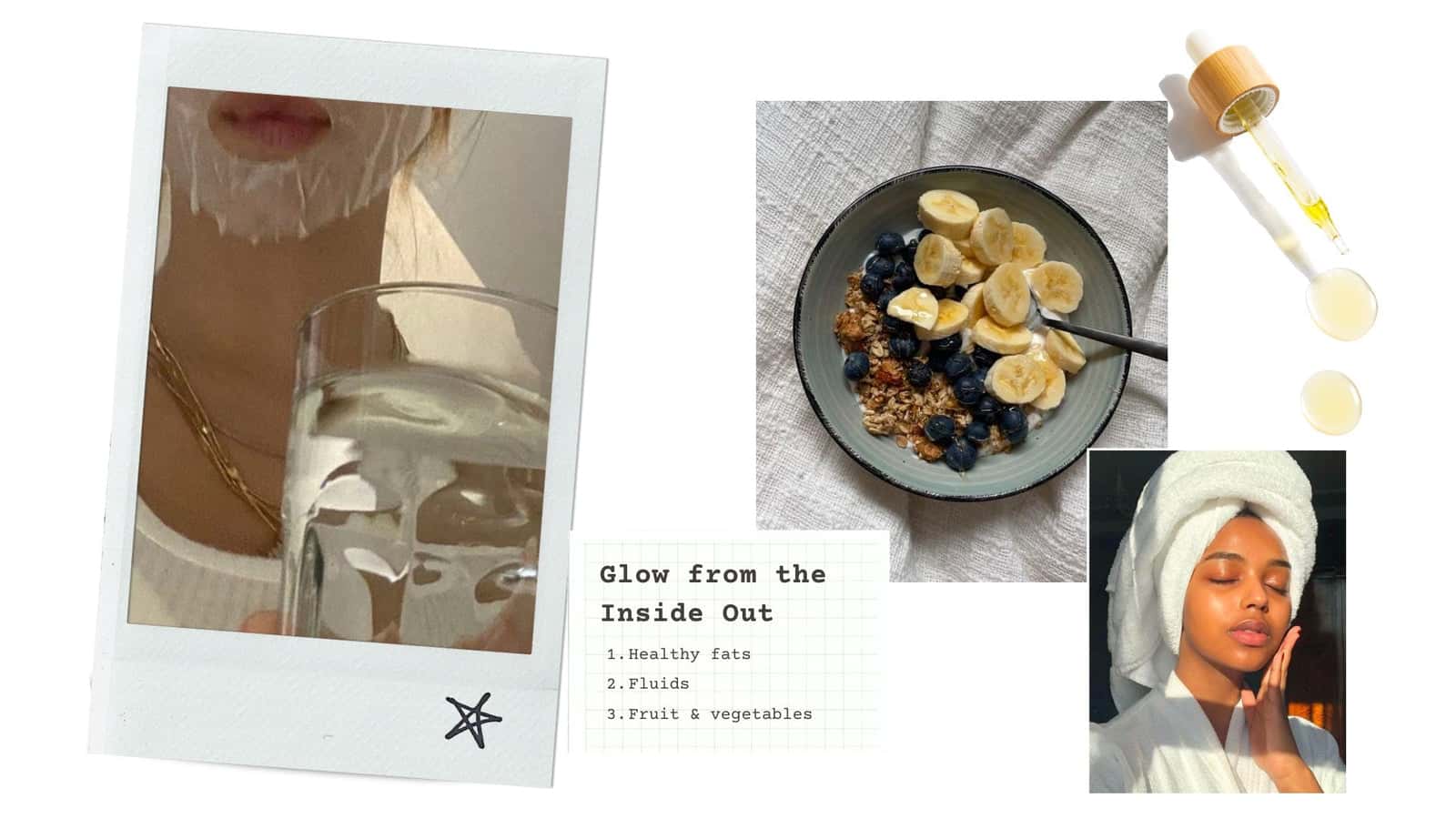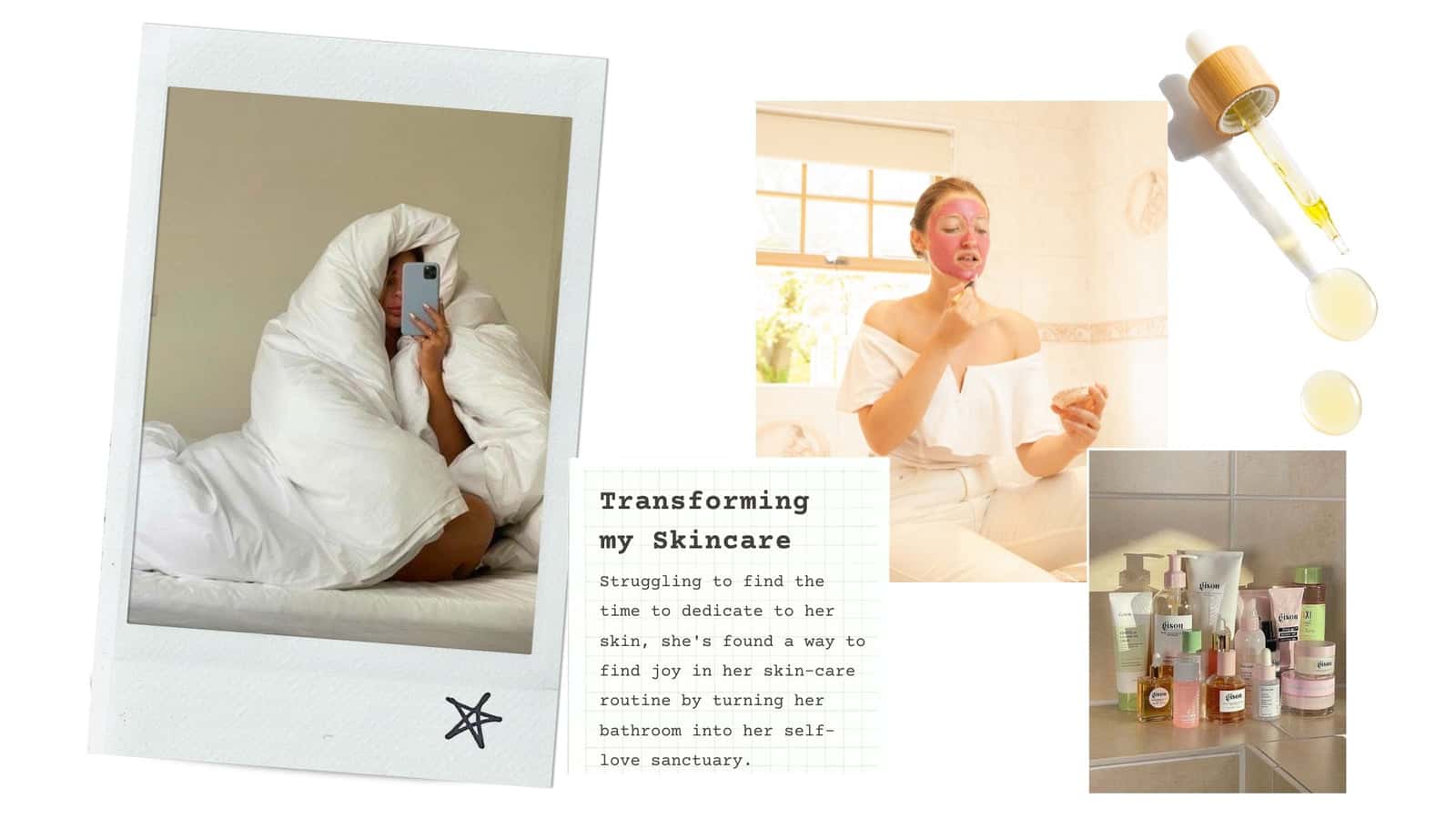
How To Be Kind To Your Body When Your Ovaries Are Acting Like The Enemy
Bethan, author of Thoughts of a Flightless Bee, speaks openly about her relationship with her body and learning she had Polycystic Ovaries (PCOS). Read below her advice on how to be kind to your body when your ovaries are acting like the enemy.
How To Be Kind To Your Body When Your Ovaries Are Acting Like The Enemy
Your relationship with your body at twenty-two is a strange one. You’ve probably grown up learning about ‘traditional beauty standards’, have formed a general idea of how you should look, and think you know what about you makes you beautiful and what doesn’t. Then your twenties hit and you begin to understand the importance of rejecting these ideals that have been instilled in you for so long; your size, your colour and your features shouldn’t have to be one specific way to make you feel beautiful. Every body is beautiful. More importantly your value as a woman should not defined by your appearance. Most of us know this, but applying it to your own body can be difficult.
As the weeks passed my spots crept back in and my period pain returned with a vengeance, bigger and badder then ever before
I started having major skin breakouts somewhere around age fourteen. I jumped between expensive face washes and different diets that all promised clear skin, but often mine ended up angrier than it was beforehand. With my mind set on a miracle cream I headed to my GP, ready for my acne to disappear. No miracle cream was offered, but the contraceptive pill was suggested ‘to balance out my hormones’. Sure enough, after a few weeks of taking Microgynon my skin started to calm down and my period pain had all but vanished. I carried on with the pill for around two years until I’d forgotten what it felt like to have breakouts and bad period pain, and I decided that I could take a break from it. For a few months nothing changed, but as the weeks passed my spots crept back in and my period pain returned with a vengeance, bigger and badder then ever before.

At this point you’ll be wondering why I didn’t go back to the pill, and I could have. But after some time off from it I was apprehensive about starting up again, it felt unnatural to have to take tablets to regulate something that was supposedly just a part of being a teenage girl. I’d heard horror stories about the pill causing mental health problems and blot clots and I decided I could live without it. Every year or so I’d go back to the GP and they’d reassure me it was ‘an age thing’, I’d grow out of my spots, I’d get used to the period pain that would make me pass out in class, keep me off school, and basically embarrass me every four weeks. But I didn’t grow out of it.
I was told I didn’t have endometriosis, but I did have polycystic ovaries.
A few years on and I decided that it was time to be my own advocate. I knew that constant skin problems and crippling period pain weren’t normal but I was potentially going to have to push to get someone to take me seriously. I’d switched to my university GP and I marched myself into the surgery armed with questions about the pill, endometriosis, and basically anything I could find online about what can cause period pain and acne together. Being sure of myself got me an ultrasound and two weeks later I was told I didn’t have endometriosis. But I did have polycystic ovaries. Sent away with the pill yet again, I did my own research to figure out exactly what my body had been trying to tell me for nearly ten years.

PCOS (polycystic ovarian syndrome) is a condition that starts in your ovaries (obviously) but can affect the rest of your body. It causes your ovaries to be enlarged, and you can struggle to produce eggs; you often won't release them at all because they haven’t formed properly which is what causes painful and irregular periods. It also causes hormone imbalances which is what triggers acne that can’t be tamed by having a regular skin routine. The best way to regulate PCOS is to go on the pill because it tops you up with the oestrogen you’ve been functioning without.
If I look back at photos of my teenage years when I wasn’t on the pill it makes me cringe, my skin was discoloured and angry looking. Even when I didn’t have full blown spots, I was left with heavy scarring that made me look almost purple in patches. I remember hating having my photo taken, even when I was wearing heavy makeup, one burst of flash and everything I’d spent time covering up was illuminated and made permanent for everyone to see again. I don’t cringe looking back at these photos because I dislike how I look; I cringe because I remember how disgusted I was with myself. Your face is the first thing people see and knowing that all you have to present is covered with marks and scars feels embarrassing. The media is full of clear faced beauties, there are no spots or marks or scars, and not being able to feel beautiful in what you’ve been given is heart-breaking. I wish I knew back then that the way I look doesn’t at all affect what I am capable of or how much I have to give.
Getting a medical label doesn’t change a lot but it does mean that I know I have to be careful about my health
I have a new skin routine now, I am Liz Earle’s number one fan, and I’m careful about what I put on my face. I do take the pill and it does help a lot but I still have to respect my skin, it is sensitive and I have to be kind to it, just like I have to be kind to myself. I will never have a flawless face but I know I have a kind one. It is so easy to find the flaws in your physical self and feel shame, it’s much harder to accept yourself and realise the way that you treat other people should really be the way you treat yourself. Every body is different and every face is different, what works for your friends may not work for you and it can take time to figure out what you need to look and feel healthy. I still get spots but I’m not embarrassed about them now, if I’d never had them, I wouldn’t have figured out that I have PCOS. Getting a medical label doesn’t change a lot but it does mean that I know I have to be careful about my health when I get older and it’s given me time to accept the fact that I’ll probably struggle to get pregnant, so I am grateful.
I’m still figuring out how to accept and enjoy the way I look, but my skin has been a good place to start. We’re not best buds yet but we’re definitely pals, and I like mine a whole lot more now I know how to treat it.
We hope you found Bethan's story of learning to love your body and be kind to yourself inspiring. If you do one thing to love your body, let it be adding the PERL Cosmetics British Pink Clay Mask into your skincare routine.
Read more from Bethan on her blog, Thoughts of a Flightless Bee.



Leave a comment
This site is protected by hCaptcha and the hCaptcha Privacy Policy and Terms of Service apply.